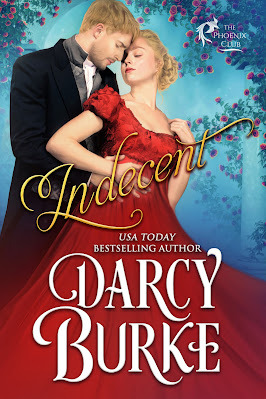Virginia Crow's Blog: Crowvus Book Blog, page 31
February 16, 2022
#HistFicThursdays - The Crossing - Ashby Jones
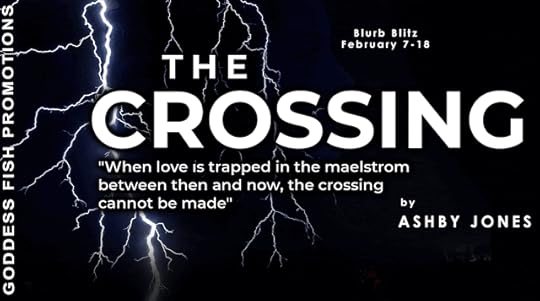
This HistFic Thursday, I am pleased to be teaming up with Goddess Fish Promotions in hosting Ashby Jones and his evocative historical novel, The Crossing. Let's meet his book:
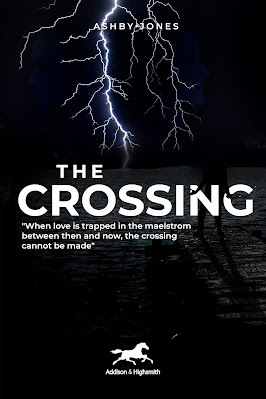
The Crossing is a powerful and haunting love story of surprising discovery set in Manhattan’s Hell’s Kitchen during Prohibition. Its mission seeks to reconcile love and guilt, grief and promise. Set apart from other stories, it combines history, fact, surrealism, and reality into an ever-recycling boost of the human spirit.
Irish-born Johnny Flynn, a former British soldier, is banished from his homeland and sent to America on a ship so riddled with disease that he realizes the voyage was meant to murder him. When he survives the trip, the captain forces him to walk the plank into the Hudson River. Miraculously, Johnny is rescued by a rumrunning Irish gang, the Swamp Angels, and given a job running whisky in Hell’s Kitchen just as Prohibition makes liquor a hugely profitable, dangerous business.
Fighting for his life and livelihood amid the denizens of the Manhattan piers, Johnny is plagued by the memory of his lost lover, Nora, whose father, the famed Irish revolutionary, James Connolly, met his death through a firing squad that included a reluctant gunman named Johnny Flynn. Nora’s last words to him, when she learned of his betrayal and left him, “I love you, Johnny Flynn”, echo in his heart, leaving him pulsing with guilt, yearning, and the hope that she might yet forgive him.
Johnny drinks hard. One night, drunk on the floor of Hailey’s speakeasy, he encounters a seeming apparition on stage, the ghostly Esme, an Irish singer who suffered unspeakable horrors at the hands of the British Black and Tans. Johnny is dazzled by her. She is not only a singer but a healer, teaching poor and afflicted children to sing and gather hope at an old theater called The Woebegone. From Esme Johnny learns how to overcome the desire for revenge, only to discover that she, too, clings to her own dark dream of retribution.
Hell’s Kitchen, Johnny discovers, is thronged with people whose damaged hearts ache for revenge, repentance and love. As he grapples with taking responsibility to help others resolve this overwhelming dilemma, he learns that Nora is coming to New York to advocate for Irish independence. As he confronts her and soon thereafter receives a piercing love letter from Esme, the story comes to a turbulent climax.
And here's the book's gripping opening:
Roughly a mile from the Statue of Liberty, Johnny Flynn stood trembling on the bridge of the ship called The Pestilence. His hands were rope-bound at the wrists and a rucksack filled with heavy stones was strapped to his back. His executioner, seaman Bile, named for the Celtic god of Hell by Johnny’s long-gone friend and fellow prisoner, Seamus, had tried in vain to kill Johnny every day on this voyage from Ireland, and now he would have his way. The vessel from which Bile would send Johnny to his death was the recently recovered, ancient famine ship found in the Bay of Kinsale. The ship still contained the skeletons of the three hundred dead who’d tried to escape the Great Famine by taking passage to America but whose journey had been ended by typhus, cholera and tuberculosis. In hopes of hiding their humiliation, the Irish had returned The Pestilence to its parting pier unannounced and mothballed it in what soon became a drying, wooded alcove south of Kinsale, leaving the three hundred bodies to rot in the hold. The ship was discovered by a group of young Irish campers shortly after the Treaty with the victorious Brits was signed, ending the War of Independence. Soon thereafter, in the fall of 1921, the Rebels filled the arid tributary with fresh water, freeing the ship and setting it on a crossing to America to test its sea-worthiness. The next step in purging their embarrassment for the deaths was to cleanse the ship’s hold of the bones and restore its ability to make money for the Emerald Isle.

Now, let's met the author!
Ashby Jones has been writing historical novels for 50 years. With degrees in Literature and Clinical Psychology; Creative Writing at UCLA under the guidance of Leonardo Bercovici. Jones previously published: The Angel’s Lamp in 2017 which was well received and reviewed by the Irish Times. Jones’s passion is writing literary fiction that attempts to understand mankind’s never-ending battles with irony, tragedy, blatant contradiction, and the anomalies of love. Such is the focus of 'The Crossing', a stand-alone sequel to 'The Angel’s Lamp', his first novel. He studied under such notables as William Hoffman, a best-selling author, and years later at U.C.L.A. under Leonardo Bercovici, a highly regarded screenwriter.
You can find him on any of these links:
You can buy the book here:
Ashby Jones will be awarding a $10 Amazon or B/N GC to a randomly drawn winner via rafflecopter during the tour:
February 13, 2022
Book Review: Even Heroes (by G. A. Bassier)
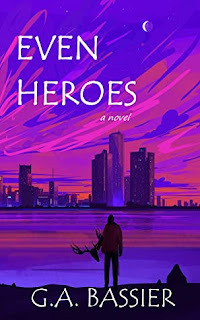
Just to start off with a point of clarification: this book was advertised to me as Upper Middle Grade. It is definitely not Upper Middle Grade. The first clue is the length (around 93k), but it also contains drug taking, domestic violence and school shootings, as well as including curse words. Reading it, I stubbornly continued to see Vincent as being 15, rather than 13. The review which follows – and the stars awarded – views it as a Young Adult book.

I have so much I want to say about Even Heroes. The first thing is that I was desperate to know how it ended, which is a sure sign of a good book. I was invested in the characters from early on, but I really did not like Vincent. He’s exceptionally judgmental about everyone around him and, because it’s all from his point of view, you get every sniping thought which goes through his head. But that’s not a bad thing at all – for a protagonist who fancies himself a superhero, the antihero vibe works very well.
I felt particularly sorry for his mum. Vincent’s dad has been out of the picture since he was a little boy, and she’s understandably very protective of him, especially given the fact he has serious asthma. He is just mean about her all the time and, in fact, comes across as very cold towards her at times. I think the fact she perseveres with him probably means she’s a serious contender for Mother of the Year. There’s one particular bit where she dares to give him tofu and he’s really rude about it. Don’t get me wrong, I can’t stand tofu, but the poor woman is doing her best!
Once you get into the swing of it, you can easily get swept along with the adventure which Vincent embarks on. Once or twice, it’s a bit too much. I could have done without the inference that Vincent manages to cure his asthma with sheer determination. And, as a teacher, I struggle to believe that all but one of the teachers at Vincent’s school believe that he’s this trouble-causing little pain in the backside, rather than noticing that two of his peers are physically and mentally torturing him. Even when I was being bullied at secondary school, teachers were reasonably good at noticing physical things, even if the sneakier nastiness stayed under the radar.
Even for a YA novel, Even Heroes is on the long side but there is never a moment where you feel like the action has stalled. I don’t think it needs as many chapters as it has (I would have combined a few of them) but the author works the cliff-hangers very well, so the end of a chapter is rarely a point when you want to stop reading! You hear every thought in Vincent’s head, which helps to build tension at some of the crucial points, and the action is very visual, almost like you’re seeing it in a graphic novel.
In summary, an action-packed novel which will take you through some of the darkest aspects of adolescence in America.
A regular kid. An impossible dream.
Thirteen-year-old Vincent’s fantasy of being a superhero can never come true for two reasons. One: he’s an asthmatic weakling whose mom won’t even let him walk up a flight of stairs (something the school bullies happily remind him of each time they stick his head in the toilet). And two: this is the real world, where superheroes don’t actually exist.
Neither of these reasons can stop Vincent from donning a mask, cape, and homemade bulletproof shield, or from spending hours training to fight imaginary bad guys. Then one night, he captures an actual bad guy—and becomes an honest-to-goodness hero in the process. Soon, Vincent is living his dream life: corralling criminals by night, navigating new friendships by day, and keeping the mother of all secrets from the world’s most overprotective mom.
There’s only one flaw in Vincent’s fantastic new existence: he’s still just a regular kid. And he’s about to face his deadliest foe yet—a merciless killer who doesn’t care how old (or young) his victims are. To survive, Vincent must rely on his new friends, unite with old enemies, and accept a painful truth rarely found in his beloved comic books:
That sometimes, even heroes can’t save the day.
February 10, 2022
#HistFicThursdays - Horrible Histories 2 - Mary Seacole
Images conjured up by the phrase "Crimean War" tend to include the ill-fated Charge of the Light Brigade and Florence Nightingale as the Lady of the Lamp single-handedly fighting back cholera and treating the wounded. These are certainly what we were told about in school and were reflected in the children's history books. I ended up being amazed that the allied forces ever managed to beat the Russians... These sort of odds were bound to make a great book!
Medical history tends to make an appearance in all of my books, so it's no surprise that I opted to make my heroine a nurse. I began researching Florence Nightingale's work and was surprised to find it was not the story I'd been told in school. I'd been led to believe she was a battlefield nurse, but her hospital was so far behind the lines many wounded men would have died long before they reached it.
No, this was no good for my heroine. She had to be a roll-up-her-sleeves-and-get-the-job-done woman. She would be in the thick of it.
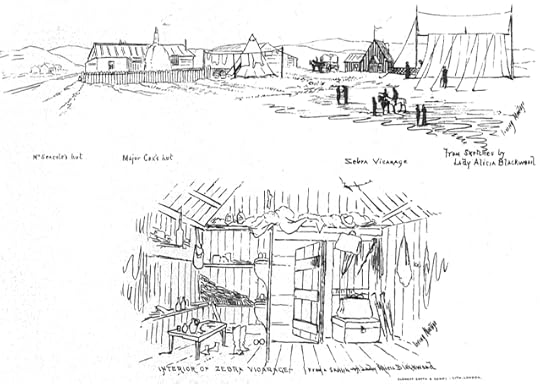 Sketch of Mary Seacole's British Hotel in Crimeaby Lady Alicia Blackwood(accessed via Wikipedia)
Sketch of Mary Seacole's British Hotel in Crimeaby Lady Alicia Blackwood(accessed via Wikipedia)
So then I scrapped my preconceived ideas and began delving into the research (and, as you know, I take research-delving very seriously!). It was here that I first properly met Mary Seacole. I had heard the name before and knew she was something to do with the Crimean War, but beyond that she was new to me. What I found was an incredible woman: strong, determined, and entirely committed to other people. She was a battlefield nurse in every sense of the phrase, establishing her hospital so close to the front line, she sometimes found herself under fire. Not only this, but she would also go out onto the field herself and help the wounded men after the battle.
How had I not met this woman, who put herself in harm's way to save and protect the men in her care, in my schooling? The answer is a simple one: colonial embarrassment. Here was a real heroine who was willing to lay her own health and wealth on the line to fulfil her drive to help and tend people. But, perhaps most extraordinary of all, she willingly did all this for people she knew could not accept her. In her autobiography, Wonderful Adventures of Mrs Seacole in Many Lands, she wrote about the War Office's decision not to send her in the second contingent of nurses:
Now, I am not for a single instant going to blame the authorities who would not listen to the offer of a motherly yellow woman to go to the Crimea and nurse her ‘sons’ there, suffering from cholera, diarrhœa, and a host of lesser ills. In my country, where people know our use, it would have been different; but here it was natural enough – although I had references, and other voices spoke for me – that they should laugh, good-naturedly enough, at my offer.
Astonishingly, it took more than 150 years for the descendants of the men whose lives she saved, to learn about her in the English school curriculum. I could not believe I had gone so many years believing Florence Nightingale had been the nurse of the Crimean War, but the embarrassment caused by our former empire and its attitudes make people a little uncomfortable to consider these things.
I was pleased to discover I wasn't the only one to feel this way. When I was introduced to the Horrible Histories song below, I realised that work is now being done to have the incredible Mary Seacole, not only known, but also recognised for her work. I speak as one of those people who for so long did not know her when I say: It's about time!
February 2, 2022
#HistFicThursdays - The Scribe (The Two Daggers, Book 1) - Elizabeth R. Andersen

Today for #HistFicThursday, it is my absolute please to welcome Elizabeth R. Andersen and her fantastic series, The Two Daggers. Here, Elizabeth takes us into 13th century Acre, dispelling a few misconceptions and welcoming us to the world of The Scribe and The Land of God...
 Acre Harbour, present-day. Photo courtesy of Wikimedia Commons
Acre Harbour, present-day. Photo courtesy of Wikimedia Commons Imagine you are in that sacred space between sleeping and waking when your body slowly becomes aware of its surroundings, and the deliciousness of sleep is still with you. As you emerge into consciousness, you notice the hardness of your bed and the chill in the air. Instead of a soft, spring and foam-filled mattress, you feel an unfamiliar crackle of straw when you shift your weight. Something’s not right. You open your eyes and stare at the ceiling – wooden poles and thatch instead of painted drywall. You went to bed in the 21st century and woke up in the 13th. Will you be able to blend in, or will you be immediately noticed as an outsider?
No, I don’t write dual timeline historical fiction, but inserting myself into the same setting as my characters is an exercise that every writer of historical fiction engages in to immerse themselves in the landscape of another century. What would seem familiar and what would be alien? How would others respond to me? These are the questions I asked myself when I set out to write The Two Daggers series. I went into the project expecting to delight in the differences between the Middle Ages and the 21st century. What I didn’t anticipate were the similarities.
The 13th century was a fascinating period of history that is often overlooked because it is wedged between two significant eras: the beginning of the crusades in the 11thcentury and the onset of the Black Death in the 14th century. But the events that happened in the city of Acre (also known as Akka or Akko, located in current-day Israel) in the year 1291 had political and religious implications for the rest of the world.
At the time, the influence of the Christian crusaders was waning, but their control of Acre, which was considered the last great city in the defunct “Kingdom of Jerusalem”, funneled immense wealth into the French, Frankish, and Italian states. Although the Muslim Mamluks no longer considered the Christians in the Levant to be a particularly serious menace, they knew they must neutralize the fighting men in Acre before they could mount a serious attack on the Mongol hoard, which was their existential threat at the time. An alliance between the Mongol leaders and the Christians in Acre would mean that there would be no safe passage from Egypt, where the Mamluks ruled, to the immense territory of the Mongols in the north. Without giving too much away, I can safely say that things didn’t go very well for the Christians that year.
This is the historical backdrop of my series, but inside of the sweeping political change, there were real people with lives that changed because of what happened in 1291, and they often get lost when one only looks at battles and political intrigues.
There is a misconception that cities and people were segregated in the Middle Ages and that people never traveled, did not bathe, ate with their hands, and urinated in on the floor. None of this is true. In fact, the major coastal cities in the 13th century were vibrant and full of different races, languages, and technical wonders that did not yet exist in the so-called West. In Acre, when the Christians, Muslims, and Mongols weren’t fighting, they were engaging in trade and intermarrying with each other. The great Islamic cities were cosmopolitan and far advanced ahead of the major cities of the West, with sanitation, highly engineered irrigation systems, and schools for learning about science, astronomy, and medicine. The technologies and fashions of these cities made it back to England, France, the Italian peninsula, and the Frankish territories when the crusaders and pilgrims returned from their journeys. Men traveled to far-flung parts of their world, not only for missionary reasons, but purely because they could. It was a time of curiosity and fleeting tolerance, as well as staggering injustice and violence at the same time.
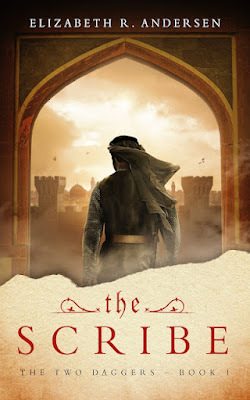
In The Two Daggers series, all my characters are misfits. Henri of Maron has immense wealth, but what he really wants is acceptance. His mother’s lowborn status means that he will always be an outsider, because his blood is not “noble”. Sidika is a highly educated young woman. It was not uncommon at the time for girls to be educated – after all, they often went on to manage their husband’s businesses, which required basic math and record keeping. But Sidika’s father educated her to the point where he worried that her intellect would intimidate powerful men. Emre is a stolen child who longs so deeply for his lost family that he cannot accept the new one he has been given, and Yusuf ibn Shihab’s strong moral compass clashes with the corruption that he sees around him. Each of these characters must overcome themselves, not just the turbulent events happening around them. This is a series of books about self-discovery, coming of age, and the tragedy of strict societal hierarchies.
The most common feedback I receive from reviewers and readers is that the first few chapters feel disjointed, because the characters do not seem to have anything in common. So it goes when we first meet our friends and lovers. We travel on separate paths until we find other misfits who eventually become our tribe. Those disconnected paths, which eventually merge, are what I enjoy about this story. I wanted my readers to have time to get to know each of the characters for who they are – not just for how they influence each other. I think it gives a deeper connection, because you can say “I knew Henri before he met Emre,” or “It’s obvious that Henri and Sidika need each other.”
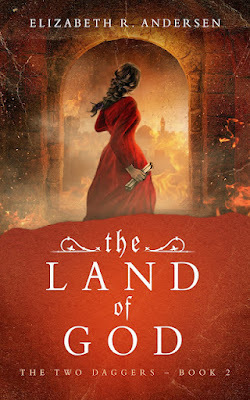
Ultimately, people from the past were the same as we are now. Habits and beliefs may have been different, but people loved and hated the same way. They made friends, grieved the loss of loved ones, craved attention and power, ate meals, tucked their children into bed, and relaxed after a long day of work, just as we do now. This is the connection to history that is so intriguing – finding the similarities, not the differences. Taking this long view of humanity has made me a more tolerant human because their history is ours as well, and our present will someday be held up to scrutiny by our children and grandchildren. They will wonder about our lives, attempt to imagine our routines, and yes, they will probably find us primitive and backwards. But perhaps they will also look for the commonalities between us as well.
Meet the book:
All Henri of Maron wanted was to stay with his family on his country estate, surrounded by lemon groves and safety. But in 13th century Palestine, when noble-born boys are raised to fight for the Holy Land, young Henri will be sent to live and train among men who hate him for what he is: a French nobleman of an Arab mother. Robbed of his humanity and steeped in cruelty, his encounters with a slave soldier, a former pickpocket, and a kindly scribe will force Henri to confront his own beliefs and behaviors.
Will Henri maintain the status quo in order to fit into a society that doesn’t want him, or will fate intervene first?
The first book in The Two Daggers series, The Scribe takes readers on a sweeping adventure through the years and months that lead up to the infamous Siege of Acre in 1291 CE and delves into the psyches of three young people caught up in the wave of history.
You can buy The Scribe from Amazon UK - Amazon US - Amazon CA - Amazon AU - Kobo - and several other sites
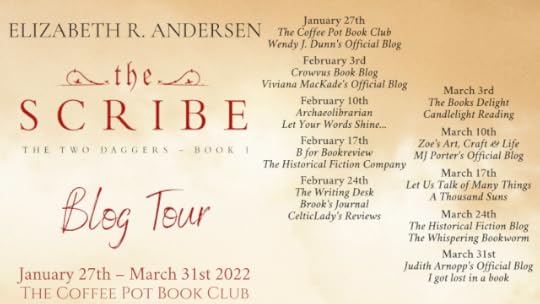
Now, meet the author:
Elizabeth R. Andersen's debut novel, The Scribe, launched in July of 2021. Although she spent many years of her life as a journalist, independent fashion designer, and overworked tech employee, there have always been two consistent loves in her life: writing and history. She finally decided to do something about this and put them both together.
Elizabeth lives in the Seattle area with her long-suffering husband and young son. On the weekends she usually hikes in the stunning Cascade mountains to hide from people and dream up new plotlines and characters. Elizabeth is a member of the Historical Novel Society and the Alliance of Independent Authors.

You can find Elizabeth on these social media links: Website - Twitter - Facebook - Instagram - BookBub - Amazon Author Page - Goodreads
January 26, 2022
#HistFicThursdays - Indecent - Darcy Burke - Excerpt
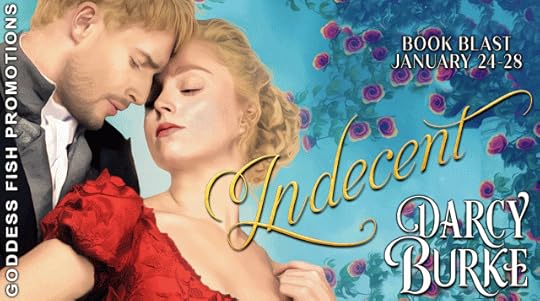
This HistFic Thursday, I am delighted to be teaming up with Goddess Fish Promotions in hosting Darcy Burke and her enthralling historical romance, Indecent. Let's meet her book:
If Bennet St. James, the Viscount Glastonbury, doesn’t find a bride with a sizeable dowry, he’ll be in the poorhouse along with his interminable number of female relatives—all of whom he loves but are a drain on the negative fortune his father left when he died of a broken pocketbook. Desperate, he hatches a scheme to snare an heiress only to be foiled by a most vexing and alluring—and unfortunately equally destitute—paid companion.
Lady’s companion Prudence Lancaster is single-minded about finding her mother and filling in the missing pieces of her life. But a villainous viscount interrupts her plans, and his surprising charm and understanding tempts her in the most indecent ways. Soon, she’s dreaming of the future instead of wallowing in the past.But when Bennet shares a dark secret, her hopes are dashed. For he won’t break the promise he made to his family, even if it means losing the greatest love he’s ever known.
And here's a little excerpt to draw you in to Bennet's and Prudence's world:
“What will you do after you return me to London? Do you plan to stay for the rest of the Season?”
“If you’re wondering whether I’ll slink back to Somerset with my tail between my legs, the answer is no. I do need to go home to check on things, but hopefully, I’ll find an heiress first.” He lifted a shoulder. “Someone will want to marry a viscount. At least I have a title to sell.”
She frowned gently, her lush lips pulling down. Lush? He ought not characterize her in such a way. She was not for him to lust after. Still, it was difficult to ignore her beauty.
“You can’t marry for love, then,” she said matter-of-factly.
He gave a humorless laugh. “I haven’t the luxury of that, I’m afraid. I will hope to marry someone I like and admire.”
“I can understand. Love is a luxury, isn’t it?”
“Why do you say that?” He found her to be rather enigmatic. She was very stiff, save her bouts of pique, which he’d thoroughly earned.
“Love brings obligations and…messiness,” she said offhandedly. “I’m alone now, and it’s far more convenient—financially, emotionally, in all ways, really.”
He couldn’t argue that love was untidy. He had only to think of his family. They loved one another dearly, even his father, but there were plenty of other messy, complicated emotions and situations. “You’ve no desire to fall in love? To marry?”
“No.”

Now, let's met the author!
Darcy Burke is the USA Today Bestselling Author of sexy, emotional historical and contemporary romance. Darcy wrote her first book at age 11, a happily ever after about a swan addicted to magic and the female swan who loved him, with exceedingly poor illustrations. Click here to Join her Reader Club.A native Oregonian, Darcy lives on the edge of wine country with her guitar-strumming husband, artist daughter, and imaginative son who will almost certainly out-write her one day (that may be tomorrow).
They’re a crazy cat family with two Bengal cats, a small, fame-seeking cat named after a fruit, an older rescue Maine Coon with attitude to spare, and a collection of neighbor cats who hang out on the deck and occasionally venture inside. You can find Darcy at a winery, in her comfy writing chair, or binge-watching TV with the family.
Her happy places are Disneyland, Labor Day weekend at the Gorge, Denmark, and anywhere in the UK—so long as her family is there too.
You can find her on any of these links:
Darcy's Duchesses Facebook Group
You can buy the book here:
Darcy Burke will be awarding an ebook copy of book 1 of the Phoenix Club series, IMPROPER, to a randomly drawn winner via rafflecopter during the tour.:
January 19, 2022
#HistFicThursdays - Raid of the Wolves (Ormstunga Saga, Book 2) - Donovan Cook
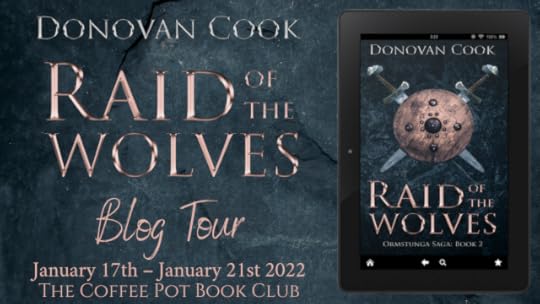
Today, I'm delighted to introduce you to Donovan Cook and his book Raid of the Wolves. This is the second book in the Ormstunga Saga, and was published in November 2021 (the first book Son of Anger, came out 2020) and is already bagging great reviews.
Let's meet the book...
The only thing that kept him going were the voices of his ancestors, screaming for blood...
Ulf and his shield brothers are sent on a raid against an old enemy — Francia, a mighty kingdom to the south, now ravaged by civil war. During the perilous sea voyage, Ulf can only focus on one thing. He demands closure: to find the man who slaughtered his family — Griml.
A hidden enemy stalks Ulf and his warriors through Francia, striking mercilessly when they least expect it. Soon the hunters become the hunted. The Norse warriors must make the ultimate choice between defying the king or angering the gods. Both could end in fury.
But there is another threat lurking in the shadows. One that Ulf could never anticipate.
Ulf is not the only one who wants vengeance.
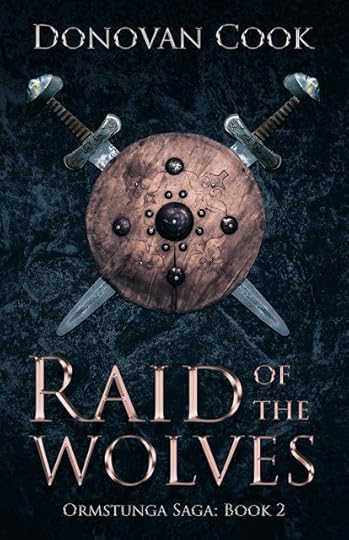
You can buy Raid of the Wolves from Amazon UK - Amazon US - Amazon CA - Amazon AU - Barnes and Noble - Waterstones
Now, let's meet the author, Donovan Cook...
Even as a young child, Donovan loved reading stories about Vikings and other medieval warriors fighting to defend their homeland or raiding in distant lands. He would often be found running around outside with nothing other than a wooden sword and his imagination.
Now older, he spends his time writing about them. His novels come from his fascination with the Viking world and Norse Mythology and he hopes that you will enjoy exploring this world as much as he did writing about it.
Born in South Africa but raised in England, Donovan currently lives in Moscow, Russia with his wife and their French Bulldog, where he works as an English tutor. When he is not teaching or writing, he can be found reading, watching rugby, or working on DIY projects. Being born in South Africa, he is a massive Springboks fan and never misses a match.
You can find Donovan on these social media links: Website - Twitter - Facebook - BookBub - Amazon Author Page - Goodreads
Follow Donovan's tour by clicking on the banner below:
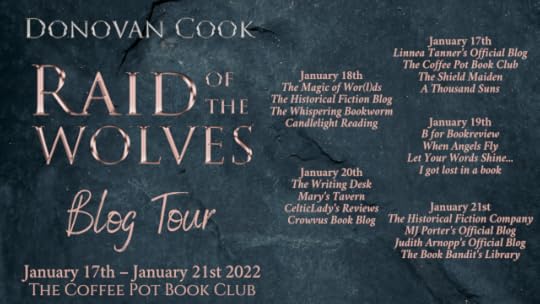
January 13, 2022
#HistFicThursdays - Writing Battles
By the very nature of the books I write, whether medieval, Jacobite, or regency, there are invariably battles to recount. A lot of historical fiction features wars of some kind because it's often in these times of trial and conflict that we can see the very best and the very worst of humanity.
Writing battles is a daunting prospect. After all, most of us writers have never been in a battle, and certainly not one which used the type of warfare with existed 200, 500, or 1000 years ago. Re-enactments and handling artefacts are great for getting an idea of the weight of weapons, the blindspots of armour, the power of a charge, but these events are full of people who have all gathered for the same purpose. This means (thankfully, I should add!) that there is not that driving fear and recklessness which must have been present in those forays. But this is where you as the writer come in. No one enters the field of combat without some reason for - or belief in - what they are doing.
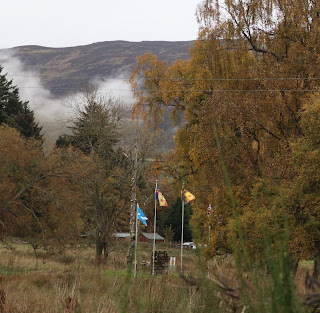 Mass grave at Killiecrankie
Mass grave at KilliecrankieAnd there are other things to consider, such as the terrain. Despite the time passed, many battlefields in Scotland have retained their landscape. The Culloden Battlefield, the last battle fought on British soil, is constantly under threat from development, but the powerful connection people have with this event has - thus far - allowed it to maintain its integrity. It is a haunting place, and one which you can't help to feel affected by, but it's also quite heavy on the commercialism. My sister lives very close to the battlefield and driving past at night is an experience!
But, for me, the site of the Battle of Killiecrankie is a truly amazing spectacle. You will never find it all in an hour, day, or even a week! I'm quite a fan of "that devil Dundee" and was pleased to have a chance to visit his grave in a quiet corner of the Atholl estate. But it was equally thought-provoking to find (and this was a chance discovery!) the marshy mass-grave of the officers on a hillside above Aldclune. There are flags flying there, although only a handful of people will ever see them as they do, so far off the beaten track.
Killiecrankie is fascinating for another reason, too. The Jacobites won the battle but, with their leader killed, it was also cost them the war. How many emotions must have been flying around there?!
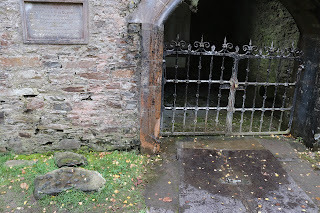 Bonnie Dundee's grave on the Atholl estate
Bonnie Dundee's grave on the Atholl estateGeography is the first thing to sort, next comes the battle plan.
Most historical battles are well documented, at least to a point. That's why we're able to know they happened! Study these carefully, they're often not exactly as clear-cut as they suggest. One of the greatest truisms of history is that it is written by the winners. There are no subjects which demand greater subjectivity than war, unless it is religion.
These plans, whether drawn on maps, written in books, or told in verse and songs, are your best chance at finding out what happened from an individual's point of view. Sometimes, it's obvious which side of the battle the bias rests on, other times it is a little bit trickier. But, bear in mind, unless you are writing a military historical fiction, most readers don't want to be bogged down in the battle so much as the action. Decide if your character is part of the battle, a sideward skirmish (yes, these happened quite a lot!), or on the periphery. Don't suppose that those who sit on the edge of battle, watching on and waiting for news, are any less a part of it - these are, after all, the ones who usually go on to write the accounts we rely on!
Here are a couple of battle scenes from my own writing. The first is from a WIP set in the Crimean War, and recounts a part of that dire event The Charge of the Light Brigade. The second is from Beneath Black Clouds and White, and is from the point of view of the wife of one of the officers...
Always the ranks closed inward, bottlenecking the cavalry before the enemy’s guns. Albert watched the Causeway Heights with a sense of great longing. He, along with the six hundred other people who rode alongside him, knew they should all be on the ridge. But instead, they were forced forward through the valley into the cavernous teeth of death. The firing of the guns had deadened his hearing and the mixture of blood and mud that splashed up at him, covering his horse, his uniform, and his face, made him feel overwhelmingly sick. He had watched countless men fall, one in particular haunted his short ride across the valley. It had been someone in Troop B, a young man who had been blown clean out the saddle by a shell, and it was his blood which matted Albert’s hair and smeared his face.
The ranks were closing in once more as the charge was sounded and Albert drew the sabre which rested by his side. When, at that moment, a shot was fired by the gun on the extreme south of the row before him, Sultan moved to avoid the shell. Caught off balance by his horse’s pre-emptive move, Albert felt himself slip in the saddle and he crashed to the ground, but not before Sultan had carried him just beyond the Russian guns. He had fallen close to the artillery and, as he rose shakily to his feet, it was to find the smoking fog of the last firing was still in the air. He put his hand before him to try and clear the air, but stepped quickly backwards as the second line of the Light Brigade stormed through the guns. The horses’ hooves sounded remote and distant, but they shook the ground so much he could barely stand up.
*****
Hosts of stars were becoming visible as the ranks of the British Army began to form within sight of the town walls. Captains Tenterchilt and Pottinger were both there with their companies and a third company under the command of Captain Forrester also presented there. The plan was a simple one. The tunnel beneath the walls of the town were to be packed, and indeed were currently being packed, full of gunpowder. The moment that the hornwork fell, these three companies were to lead the rest of the regiment into the city, and the siege would finally come to its end. This form of warfare had been in existence over hundreds of years and, whilst this meant that it was perfected by the attacking forces, it also meant that the French would be foolish not to expect such an end.
All the same, anxious cries filled the night as debris plummeted from the great height it had reached when the barrels were ignited. One individual who remained silent, though the raised hand to her face suggested she was far from calm, was Elizabeth Tenterchilt. She watched numbly as the stars were concealed behind the billows of dust that bulged into the air and she listened with a horrified sickness as piercing screams and commanding voices stabbed through the night. She tried to block them from her head, certain that if one should be her husband’s she should recognise it and she could not imagine what she should do if he failed to return.
“There are no sounds in the world like it,” Anne Pottinger announced as she walked to stand beside the other woman. Her face seemed pale in the starlight and her eyes sparkled despite the strong tone with which she spoke.
“It is awful,” Elizabeth whispered. “Truly terrible.”
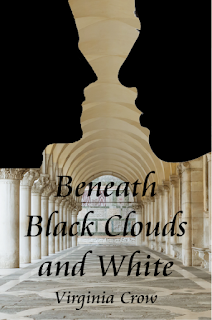
January 6, 2022
#HistFicThursdays - Horrible Histories 1
My sister had and read all the books, even the special editions. And then - the best part of twenty years later! - another sister began to introduce us to some of the songs from the programme. Still less than 100% convinced, it was pointed out to me that there was a song for every period in history. This sounded like a throwing down of the gauntlet, but they did indeed manage to find me the song fitting for my current project.
Here it is:
Since then, I've become something of a convert to the musical antics which were in the series and there hasn't been a day in the last month when I haven't woken up randomly singing a line from one of them!
The Borgia Family song certainly over-simplifies the slightly strange set-up which Pope Alexander VI had with his family, but it goes a long way towards introducing this topic to both a child and a newcomer (and, let's be honest, it is very irritating when people invade your personal space!). Although the Borgia family do eventually come into my book, I'm not quite there yet. Beyond what popular culture has put out there, particularly about Lucrezia, I didn't know much about them and I have to admit I found this song was exactly what I needed to whet my appetite and I leapt in with both feet to explore and research the intricacies and complicated relationships of this family.
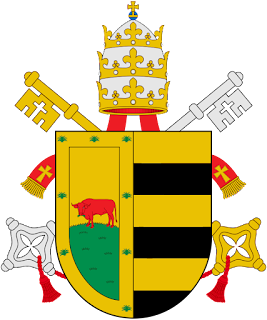
Alexander VI's Coat of Arms(Echando una mano)
This has provided a few problems of its own! Returning to normality and discovering that it was not in fact 1493 has been difficult. But I have had my deep love of both history and theology (the subjects of my degrees) rekindled by my research. The thing about authors living and breathing their work is that, as a historical fiction author, you always have to remind yourself that you have the gift of enabling time-travel without having all tricky parts of actually going back in time, but it comes at the expense of living life with a foot in the past as well as the present.
Still, love it or hate it, Horrible Histories certainly makes history accessible and it was enough to help my story to grow from a few vague ideas into a full-blown plot.
I aim to discuss one of these songs each month. Any requests, put them forward. Go on, historical fiction writers, try and find your Horrible Histories song - there's one for everyone!
December 30, 2021
#HistFicThursdays - The Widow Wore Plaid by Jenna Jaxon - Excerpt

Today's blog is one of our visiting authors!
It is great to hear from fellow historical fiction writers, and today I'm very excited to welcome historical romance author, Jenna Jaxon, and her book The Widow Wore Plaid!
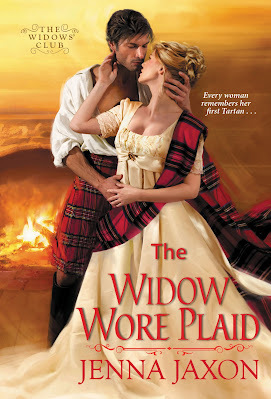 The Battle of Waterloo made them widows, but each has found new happiness. And Jane, Lady John Tarkington, intends to keep her freedom, even if love—and one particular gentleman—are determined to claim her heart . . .
The Battle of Waterloo made them widows, but each has found new happiness. And Jane, Lady John Tarkington, intends to keep her freedom, even if love—and one particular gentleman—are determined to claim her heart . . .
It is a truth rarely acknowledged—at least in public—that a wealthy widow is free to pursue a great many adventures. For two years, Jane has privately enjoyed her independence. Why should she remarry, even when the gentleman proposing is as wonderful as Gareth, Lord Kinellan? She entreats him never to ask her again. But as her Widows’ Club friends—now all joyfully remarried—gather at Castle Kinellan, Jane begins to wonder if stubbornness has led her to make a terrible mistake . . .
Kinellan needs a wife to give him an heir, and he wants that wife to be Jane. They are perfect together in every way, yet she continually refuses him. Just as he is on the point of convincing her, a series of accidents befall Gareth and point to an enemy in their midst. He has promised Jane a passionate future filled with devotion, but can he keep them both alive long enough to secure it?
Here is a snippet from the book to whet your appetite...
Parched, Gareth headed for the refreshment table that had been set up sufficiently far from the dancing to be out of danger. Footmen were stationed at each end to help keep those who might have imbibed too much from crashing into the table. He grabbed a cup of ale and drank thirstily until the tankard was empty. Setting it back on the table, he then took a glass of rich, red wine and sipped more moderately before heading back to the dancing.
He skirted the dancing couples, where Lathbury was heying with Jane, who was now flagging a bit. Two sets of fast-paced Scottish dancing was hardly comparable to the more staid English country dances. One actually had time—and breath—to converse during those. The faster paced Scottish tempos demanded stamina and good wind.
A young couple ran laughing in front of him. Smiling at the gaiety of the pair, Gareth backed out of their way, toward the blazing bonfire, his gaze still on Jane’s entrancing form. She did cut a delightful figure when dancing.
A passerby jostled his elbow, but he managed to save most of his wine. He spun toward the ungraceful lout when someone else shoved him harder.
The jolt propelled Gareth, already off balance, backward, directly into the flames of the roaring bonfire.
Desperately windmilling his arms to regain his balance, Gareth fought the sickening, helpless feeling of falling backward. Searing heat on the back of his head and jacket grew greater with each passing second, telling him his efforts to right himself would be in vain. God help him, but this would be a fiery end.
Now meet the author!
 Jenna Jaxon is a best-selling author of historical romance, writing in a variety of time periods because she believes that passion is timeless. She has been reading and writing historical romance since she was a teenager. A romantic herself, Jenna has always loved a dark side to the genre, a twist, suspense, a surprise. She tries to incorporate all of these elements into her own stories.
Jenna Jaxon is a best-selling author of historical romance, writing in a variety of time periods because she believes that passion is timeless. She has been reading and writing historical romance since she was a teenager. A romantic herself, Jenna has always loved a dark side to the genre, a twist, suspense, a surprise. She tries to incorporate all of these elements into her own stories.She lives in Virginia with her family and a small menagerie of pets--including two vocal cats, one almost silent cat, two curious bunnies, and a Shar-pei beagle mix named Frenchie.
You can find her on any of these links:
You can buy the book from any of these links:
Jenna Jaxon will be awarding a $20 Amazon or B/N GC to a randomly drawn winner via rafflecopter during the tour:
December 24, 2021
Day Twenty-Four: MERRY CHRISTMAS!
 Picture One: Halfway round the windfarm this evening for our Christmas Eve walk!
Picture One: Halfway round the windfarm this evening for our Christmas Eve walk!
 Picture Two: Hoping to encourage the snow we were promised to fall!
Picture Two: Hoping to encourage the snow we were promised to fall!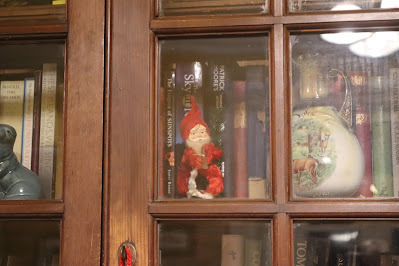 Picture Three: Yes, this chap is made of pipecleaners, but he's lasted more than forty Christmases with us!
Picture Three: Yes, this chap is made of pipecleaners, but he's lasted more than forty Christmases with us! Picture Four: The reason for the season!
Picture Four: The reason for the season! Picture Five: A rather unusual decoration, but it looks lovely when it's lit.
Picture Five: A rather unusual decoration, but it looks lovely when it's lit. Picture Six: The crib is always doubly lovely on Christmas Eve.
Picture Six: The crib is always doubly lovely on Christmas Eve. Picture Seven: In the other room the presents are amassing.
Picture Seven: In the other room the presents are amassing. Picture Eight: The roast beef in the oven ready for tomorrow's breakfast
Picture Eight: The roast beef in the oven ready for tomorrow's breakfast Picture Nine: Holly butterflies climbing the lantern chain
Picture Nine: Holly butterflies climbing the lantern chain Picture Ten: The Fimo crib set up. And yes, the star is hanging from a paperclip!
Picture Ten: The Fimo crib set up. And yes, the star is hanging from a paperclip!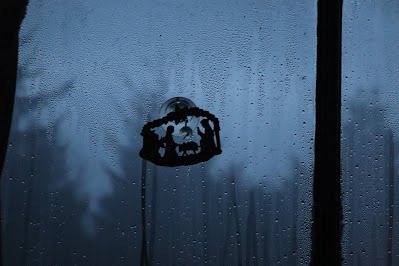 Picture Eleven: A little Nativity scene on a misty window
Picture Eleven: A little Nativity scene on a misty window Picture Twelve: The glow from these lights is just amazing!
Picture Twelve: The glow from these lights is just amazing!  Picture Thirteen: The once-a-year weasel socks being worn by Chief Weasel
Picture Thirteen: The once-a-year weasel socks being worn by Chief Weasel 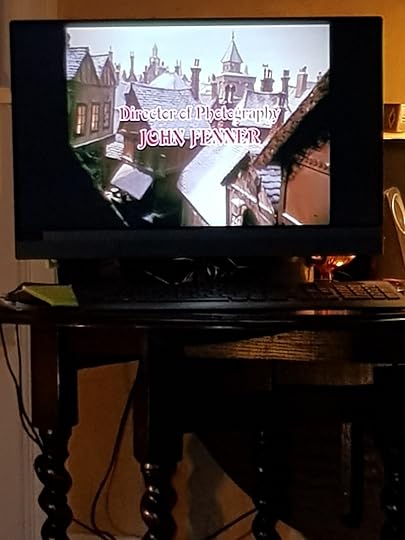 Picture Fourteen: Of course, it had to happen!
Picture Fourteen: Of course, it had to happen!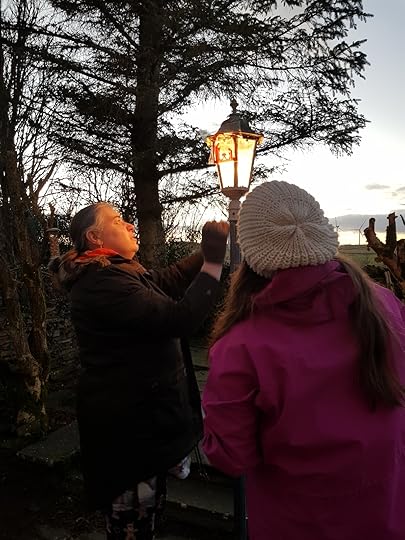 Picture Fifteen: Setting up the silhouette... It sort of worked!
Picture Fifteen: Setting up the silhouette... It sort of worked! Picture Sixteen: Walking away into the sunset!
Picture Sixteen: Walking away into the sunset! Picture Seventeen: The view of the house at the start of the walk
Picture Seventeen: The view of the house at the start of the walk Picture Eighteen: Ready, set, round the windfarm we go!
Picture Eighteen: Ready, set, round the windfarm we go! Picture Nineteen: The sun was setting by the time we reached the lochan
Picture Nineteen: The sun was setting by the time we reached the lochan Picture Twenty: Where we stopped to sing "Silent Night"
Picture Twenty: Where we stopped to sing "Silent Night" Picture Twenty-One: A truly Christmassy sky
Picture Twenty-One: A truly Christmassy sky Picture Twenty-Two: The first mince pie of the day (there were more later!)
Picture Twenty-Two: The first mince pie of the day (there were more later!)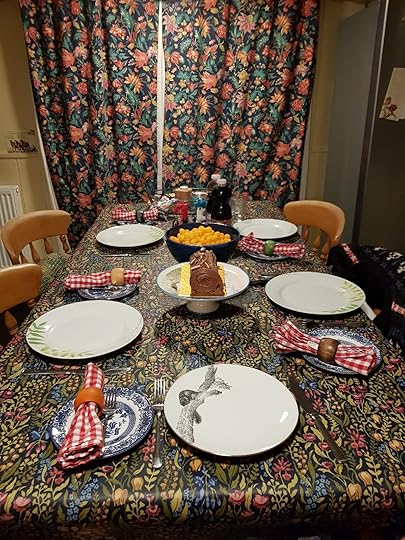 Picture Twenty-Three: We managed to have dinner at dinner time!A first for Christmas Eve!
Picture Twenty-Three: We managed to have dinner at dinner time!A first for Christmas Eve! Picture Twenty-Four: Orlando sporting his Christmas finest!
Picture Twenty-Four: Orlando sporting his Christmas finest!Merry Christmas, Everyone!
Crowvus Book Blog
- Virginia Crow's profile
- 128 followers


